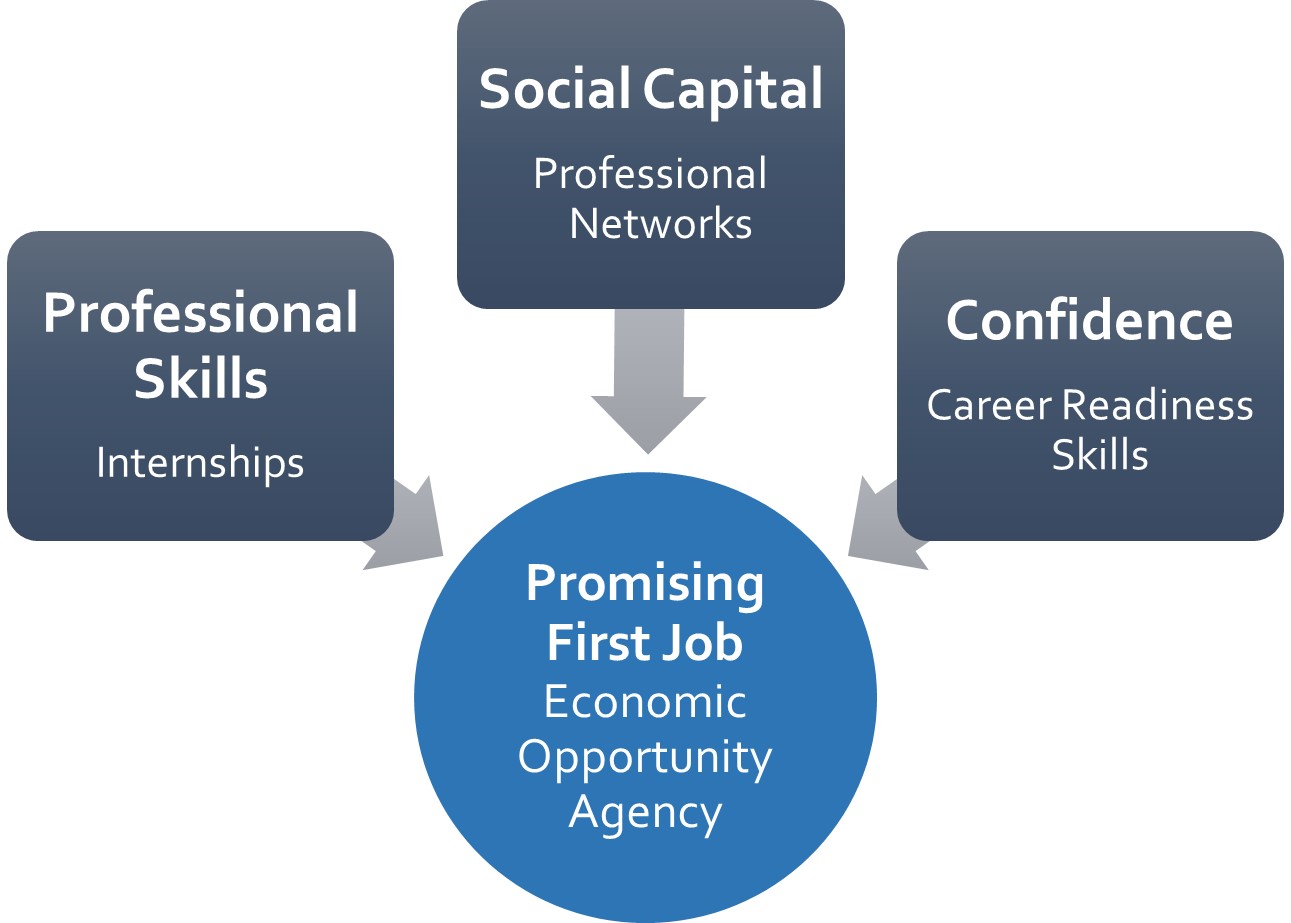What sets us apart
Model for Success: Since our program’s inception we’ve been committed to honoring the expertise and resources that are already available on the University of Washington campus. This commitment has driven us to differentiate and innovate. We believe our “value add” is intensely focusing on helping scholars gain relevant work experience, build their social capital, and increase their self-efficacy. To put this theory into action (see graphic on right), we have tapped into our vast network of highly respected professionals and companies.
Why it matters: Competition in the job market can be fierce, and unfortunately a college degree does not automatically translate into meaningful employment with opportunities for career advancement. This is especially true for those students who have experienced the foster care system or insecure housing as minors. To ensure that students land that first promising job post-graduation, students must differentiate themselves and demonstrate career readiness, resumes must show pre-professional experience in business, and students need robust social and professional networks.

Building Social Capital
Social capital is the value that is derived from relationships and networks, and research suggests that it is strongly associated with social and economic mobility. In relation to careers, social capital is the hidden currency that gets you a job and later helps you get promoted. Unfortunately, many college students are unclear about the importance of social capital and/or unsure how it works. Further, many students’ inherited networks (family, friends, and community members) may not be able to provide the type of social capital that opens doors in the corporate world. According to the Christensen Institute Missing Metrics report, “Without access to social capital and broad diverse networks, less-connected students will continue to be at a distinct disadvantage when it comes to their career trajectories.”
This is why we prioritize broadening and diversifying our scholars’ networks. We make an average of eight “strategic introductions” to professionals per scholar per year, as well as arrange for company site visits. Each time a Frazier Scholar spends time with a business professional, it brings social capital benefits, whether it is an informational interview, a job shadow, or a longer-term mentoring relationship.
Roughly 70% of people are hired at a company where they have a connection, proving the age-old adage…“It’s not just what you know, but who you know” that matters.
Measuring Success
While Frazier Scholars is still a new program, we strongly believe in the importance of collecting data to understand our impact and to help us improve our work. At the most basic level, success is measured by the number of scholars who participate in our program and the number who land promising jobs within the first six months of college graduation.
Beyond this metric, we also collect data related to number of relevant work experiences, expanded social capital, and increased self-efficacy—outcomes we believe are critical for career growth and economic opportunities.
To these ends we track internships, mentoring and networking. We’ve also implemented pre/post program surveys and a post-program interview with our graduating scholars to provide us with information about change in these outcome areas.
Thus far we’ve captured encouraging feedback. For example, one graduate of the program recently reported, “I have my foot in the door because of the program. I was able to expand my network and meet new people, and in companies I had never heard of.”
